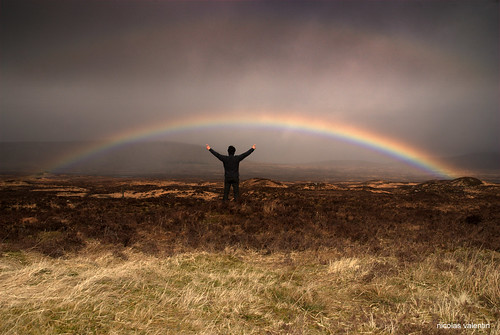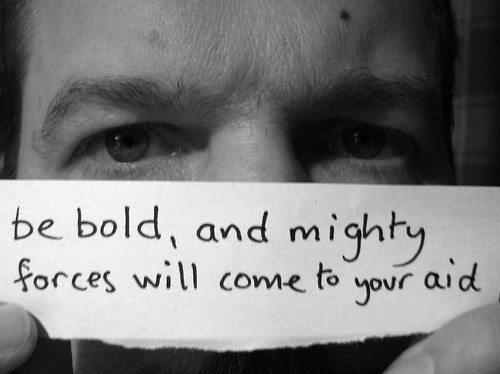
I see cars with the above bumper sticker all the time. I believe in peaceful coexistence and totally agree with the idea that religions should not let disagreements turn into violence. While the thoughts behind the bumper sticker are well-intentioned, I think some of them are also shallow and disrespectful of the distinct qualities of religion.
First of all, it is as if the person with the bumper sticker thinks that all they have to do is tell religious people to coexist and wha-la, peace will magically happen. And no wonder they believe this. Most people seem to believe that religion is nothing more than a self-imposed delusion meant to help people get through life, feel better about themselves and provide guidance. They see religion as something that serves the religious.
But what the bumper sticker misses is that many religious adherents actually believe their faith conforms to reality. We actually believe that it is TRUE. Imagine that!
There is a funny thing about truth. You can't pick and choose it. Have you ever noticed how the world is probably nothing like you would have designed it? In my foolish logical mind, if I could have designed the world, it would be so utilitarian as to have nothing but 90 degree angles, human beings would have wheels instead of being legs to walk, and the cosmos would not exist in its vast emptiness. The Earth would be flat but never ending and there would be no other planets or worlds beyond it. People wouldn't differ in heights, abilities, or privileges of any kind. I don't think I would have had the creativity or the wisdom to have created beauty, not seeing any practical value in such a thing....
Doesn't this alien world we live in scream "You don't get to choose truth"? Our very genetics reverberate this sentiment.
Then why do we think that when it comes to religion, things are different?
The reason that I'm a Christian is because I have found no better explanation of its stories than the one that says, "they must be true". Believe me, I've tried thinking that it was made up by the authors of the Bible, or by the church, or that Jesus was merely a man who has been mythologized over time, etc.... Every alternative that I've considered took MORE faith than simply believing as a Christian.
I believe Christianity is true, NOT simply MY truth. For instance, when Christianity says that humanity has a fallen nature, I believe that applies to everyone, even non-christians!
The fall of man (and creation itself) might not be absolutely proven, but it still can be tested. I've found no test that disqualifies it but no smoking gun to absolutely prove it 100% without a doubt either. The greatest proof I've found of this and other Christian truths is simply that by living my life as if these claims are true, I have found the best way to live. One popular Christian teacher (Steve Brown of
www.stevebrownetc.com) says that Christians are beggars who having found bread, are simply pointing the way for others to do the same.
Good religious people can disagree and argue their points. Not only would I say that the debate needs to continue, but we don't do enough debate. Critical thinking should prevail. We don't talk enough about religion, treating it as a taboo subject. But how can a system of belief that addresses the most fundamental questions of life, such as what is its very purpose and what happens after death, be ignored? Isn't that the height of insanity?
As a Christian, I reject reincarnation. I can't prove that this is the only time we go around any more than the Hindu or Buddhist can prove reincarnation. But I can demonstrate how the Christian belief in only one life on earth causes one's life to be better for it.
I sense that "coexist" means "live and let live" by not even debating or discussing our differences. I see it as affirming relativism when it comes to matters of faith. I have to reject such an affirmation. And anyone proponent who expresses disagreement with me, is certainly no relativist. How can someone who believes all truth is relative and one's perception is truth argue with someone else's perception?
I believe in the dialectics of Hegel. It says that truth is to be found by forming a thesis, an antithesis and a synthesis. In other words, you start with a belief, you test that belief against its opposite and you let that testing process flesh out what is and isn't true until you find the truth.
If your faith is true, it can not be threatened by debate. If it is false, why would you want to nurture and protect it from debate?
Finally, I want to say that the best thing that a "coexist" proponent can do to encourage peace among religious people is to encourage Christians to follow Christ. By truly following Christ, there is no room for imposing my faith through coercion or violence. The same is true of many other religions. Unfortunately, I can't say this is true of every religion....



